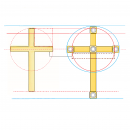Resulta raro que nadie haya comentado la muerte de este irónico , escritor y semiólogo.
http://elpais.com/tag/umberto_eco/a/
Espero que nadie añada el típico D.E.P, más en paz (o en ausencia absoluta de ello) que muerto no se me ocurre.
El atrículo que publicó en España el País hace unos cuantos años, quizás acababan de comercializar W95 (en términos de pensamiento, hace dos días), mayúsculo. Eco establecía un paralelismo entre el catolicismo de la libre elección como equivalente a Mac y el determinismo, pero también el experimentalismo) del protestantismo centroeuropeo con Microsoft DOS.
http://elpais.com/tag/umberto_eco/a/
Espero que nadie añada el típico D.E.P, más en paz (o en ausencia absoluta de ello) que muerto no se me ocurre.
El atrículo que publicó en España el País hace unos cuantos años, quizás acababan de comercializar W95 (en términos de pensamiento, hace dos días), mayúsculo. Eco establecía un paralelismo entre el catolicismo de la libre elección como equivalente a Mac y el determinismo, pero también el experimentalismo) del protestantismo centroeuropeo con Microsoft DOS.



